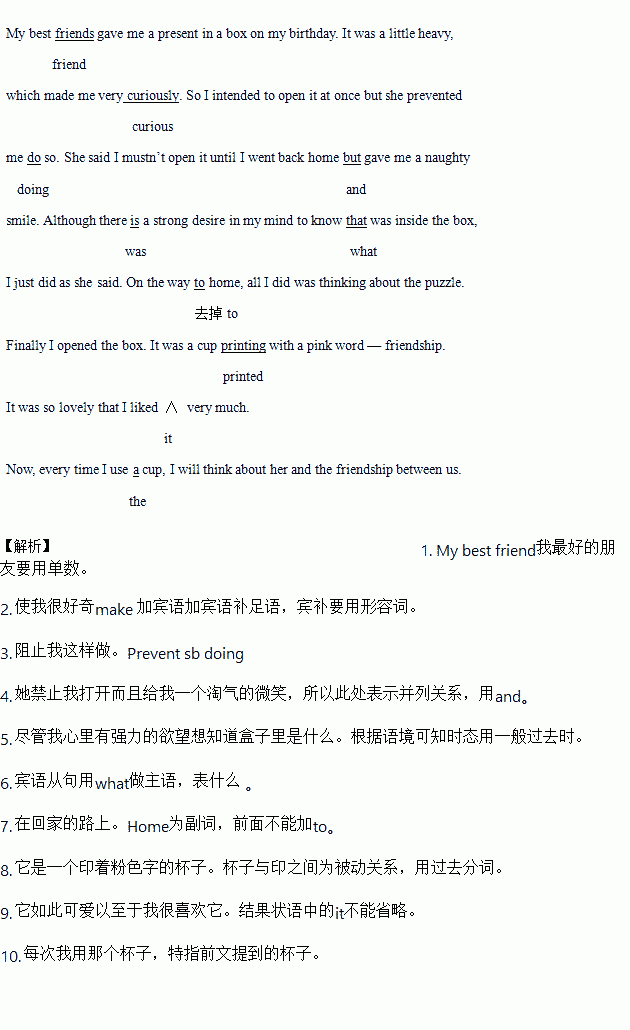题目内容
My best friends gave me a present in a box on my birthday. It was a little heavy, which made me very curiously. So I intended to open it at once but she prevented me do so. She said I mustn’t open it until I went back home but gave me a naughty smile. Although there is a strong desire in my mind to know that was inside the box, I just did as she said. On the way to home, all I did was thinking about the puzzle. Finally I opened the box. It was a cup printing with a pink word — friendship. It was so lovely that I liked very much.
Now, every time I use a cup, I will think about her and the friendship between us.
练习册系列答案
相关题目


 ct and talk about something else. But I was wrong. He was silent for a few minutes, and then he ______ to tell me all about his friend.
ct and talk about something else. But I was wrong. He was silent for a few minutes, and then he ______ to tell me all about his friend.